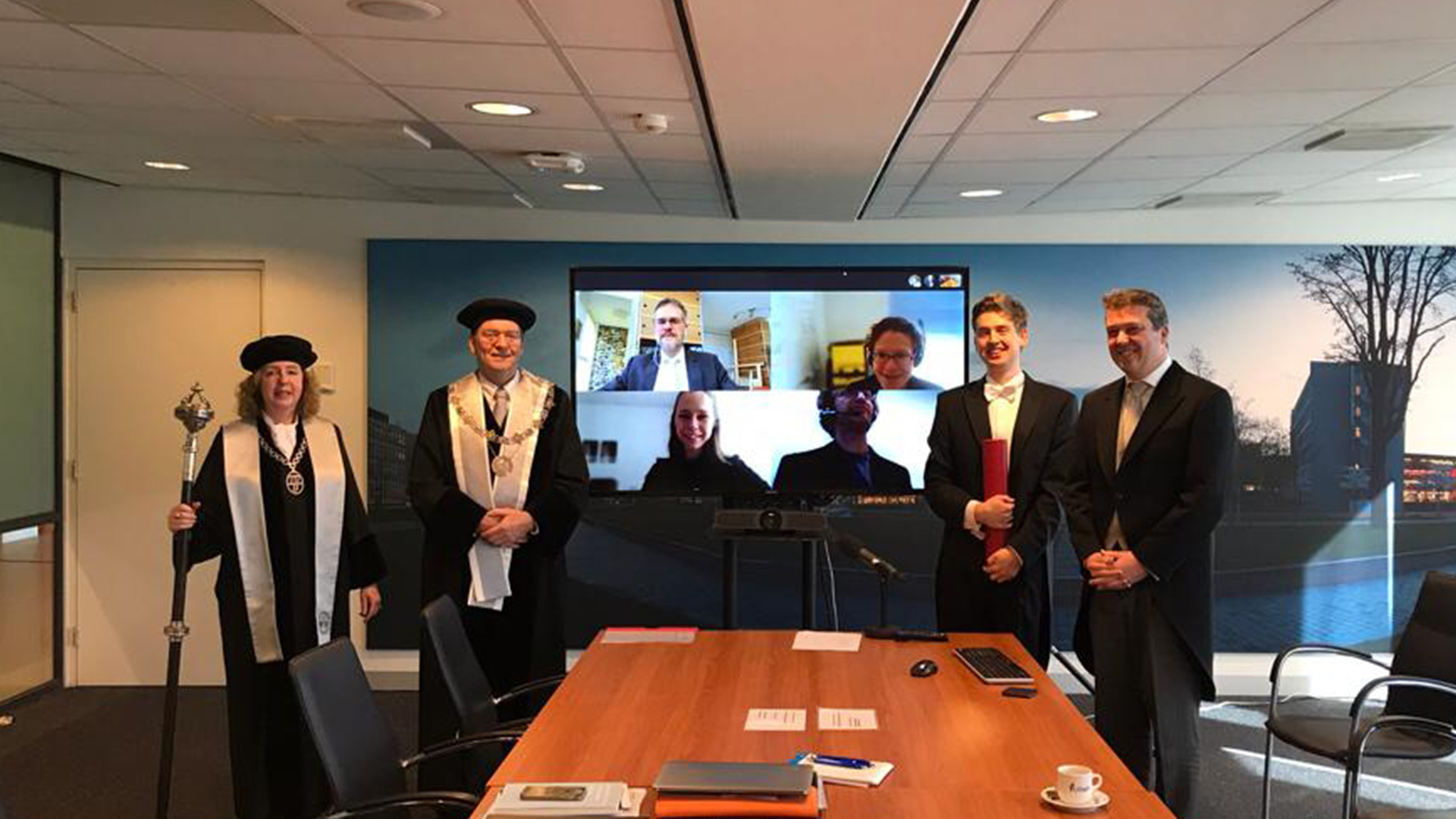Information technology does not (yet) provide many proximity benefits
At a time when half the world is working at home because of a pandemic, it hardly seems imaginable. Nevertheless, teleworking as a strategy to take advantage of the proximity of a large city turns out to be less successful than expected. "If employees can work at home for one or more days, they are prepared to accept greater commuting distances," says De Vos. It is one of the most important effects he discovered in his PhD research.

Good broadband connections simplify teleworking, but this does not mean that you always benefit from the proximity of a large city. Building in the city therefore seems to be a defensible policy for the time being. In his research 'Information technology and urbanisation economies', Duco de Vos focused mainly on the phenomenon of 'proximity benefits'. The idea behind this concept is that municipalities near large cities can 'borrow' urbanisation benefits, the so-called 'borrowed scale', when they are connected by good roads and public transport. After all, people benefit from the presence of amenities of the big city, such as work, nightlife, restaurants, and public transport. Simultaneously, they pay less for a house in the suburbs and suffer less from air pollution. Working online also appears to improve labour productivity. The key question of his PhD research is whether good infrastructure for information technology also makes a significant contribution to these 'proximity benefits'.
A study of travel behaviour clearly shows that people get into cars or use public transport more often the more they work via the Internet. They are willing to accept a job at a greater distance from where they live. The distance between home and work increases on average by twelve percent. People also travel much further for 'services and personal care'. In other words: if they can easily find out online where the best restaurant is or an interesting theatre company is performing, they do not mind getting behind the wheel. The more people spend time on the internet, the greater the travel distance. It is one of the remarkable conclusions from the research.
The big question, of course, is whether people who have excellent internet - and use it - find it easier to get a good job. "It is difficult to find hard evidence for this. The effects I have found are not dramatic," says De Vos. In Sweden, too, he could only find a very modest connection with chances of getting a good job. "Municipalities that invest in high-speed internet shouldn't have high expectations about the employment effects," he says. Nor should the effects of teleworking as a strategy for reducing emissions be overestimated. In that respect, it's good that the enormous housing challenge facing the Netherlands is largely being realised within city limits. If, on average, people drive more, thus increasing their impact on the environment, it would be better to put the houses in the city where the jobs are.
De Vos does not rule out the possibility that information technology will help the peripheral municipalities in the future. For Thai or Japanese food, you don't have to go from Purmerend to Amsterdam and online services such as Skype, Facetime, and Microsoft Teams make remote meetings increasingly comfortable. De Vos: "If urban living is gradually becoming unaffordable, as a resident of a suburb you may still be able to benefit in the long run thanks to information technology. And who knows, maybe the current pandemic will help people find out that working from home can be fun."
De Vos set a good example on 17 March: he successfully defended his thesis via Skype.
